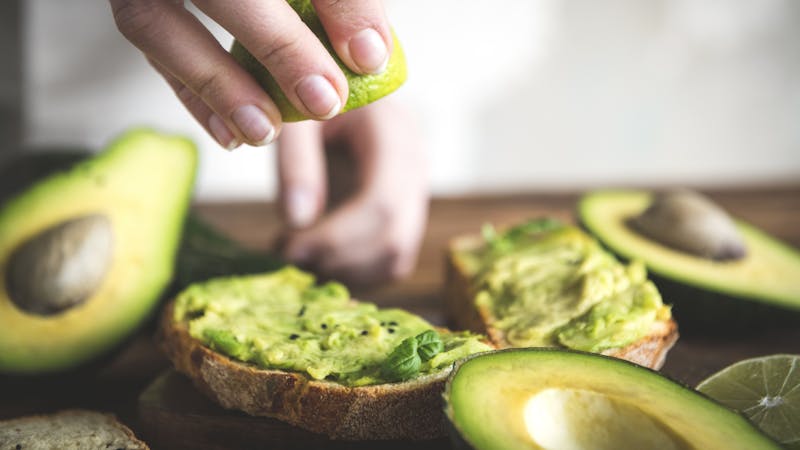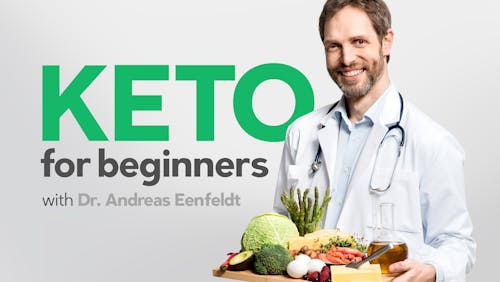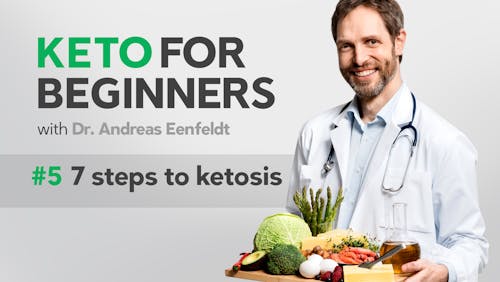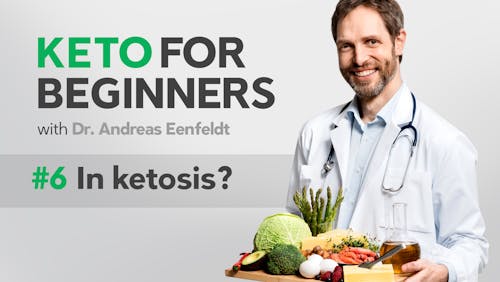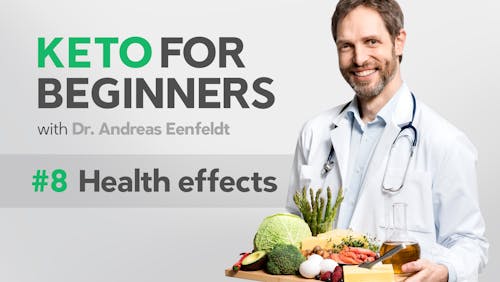Eggs: 10 health benefits and nutrition facts
Eggs: they’re nutritious, filling, and extremely versatile. Although eggs are high in cholesterol, eating them has very little effect on blood cholesterol levels in most people.1 What’s more, they may provide some health benefits.
Keep reading to learn all about eggs, along with great ways to include them in your healthy lifestyle.
1. Egg nutrition facts
Eggs pack an impressive nutrient punch. Importantly, while both the yolk and white contain protein, the yolk is much higher in other essential nutrients.
One large egg (50 grams) has approximately 6.5 grams of protein, 5 grams of fat, 0.5 gram of carbohydrate, and 70 calories. This macronutrient profile makes them an ideal staple food for keto or low-carb diets.
Eggs are a great source of several vitamins and minerals, including vitamin B12, selenium, and iron.2
They also contain smaller amounts of the other B vitamins, vitamin E, potassium, and calcium.
Additionally, eggs are high in choline, an essential nutrient which has been linked to liver and brain health.4 Plus, the choline in eggs is absorbed more effectively than choline taken in supplement form.5
Egg yolks also contain nutrients called carotenoids which may help protect eye health in some people.6 However, this has not yet been confirmed in clinical trials.
Eggs from pastured or organically raised hens have more omega-3 fatty acids and are slightly higher in protein, vitamins, and minerals than eggs from caged hens.7 However, eggs from caged or conventionally raised hens are still rich in protein and other nutrients. Plus, there aren’t any studies showing one type of egg is better for your health than another.
2. Eggs are an excellent source of protein
Protein is vital for good health. A few of its roles include helping your body build and maintain muscle and keeping your skin, hair, bones, and internal organs healthy.
Eggs are a convenient and delicious way to help meet your daily protein needs.
Three large eggs provide about 19 grams of high-quality protein.8 We’ve included eggs as number 2 on our list of the top 10 high-protein foods.
What’s more, although egg whites are popular among bodybuilders, whole eggs seem to be more effective for building muscle — in addition to being a much better source of nutrients overall.9
3. How many calories do eggs have?
One large egg has approximately 70 calories. This is the most common size of eggs that are found in grocery stores and served in restaurants.
However, eggs come in several sizes with slightly different calorie counts:10
| Small egg (38 grams) | 50 calories |
| Medium egg (44 grams) | 60 calories |
| Large egg (50 grams) | 70 calories |
| Extra-large egg (56 grams) | 80 calories |
| Jumbo egg (63 grams) | 90 calories |
Of course, the larger the egg, the more protein and nutrients it contains, too.
Different methods of preparing eggs can also affect their calorie counts. For instance, three large hard-boiled or poached eggs have about 210 calories, while three large fried or scrambled eggs can have 300 calories or more, depending on the amount of fat used during cooking.
However, at Diet Doctor, we don’t think counting calories is a great idea.
Regardless of their size or the way they’re prepared, eggs are a nutritious food you can enjoy regularly — two, three, or more at a time — without keeping track of their calories.
4. Eggs are filling and may help you lose weight
Have you noticed that after eating eggs, you feel full and satisfied?
In study after study, eggs have been shown to help people stay full for several hours after eating.11
In some trials, people ended up naturally eating much less for the rest of the day after having a breakfast that included eggs compared to a breakfast without eggs.12
Eating foods high in protein like eggs can trigger the release of “fullness hormones” like GLP-1 and PYY.13 Additionally, including eggs at a meal may result in lower levels of the “hunger hormone” ghrelin.14
So it makes sense that eating nourishing, filling foods like eggs that naturally reduce hunger could help you lose weight over time. Also, limited research suggests that including eggs in a higher-protein diet may encourage fat loss and help preserve muscle.15
5. Eggs may be beneficial for heart health
Decades ago, eggs earned a reputation for increasing heart disease risk because they’re high in cholesterol. However, according to recent high-quality research, the opposite seems to be true: eating eggs may improve several markers of heart health.
Frequent egg consumption has been shown to increase levels of HDL cholesterol (a marker linked to decreased heart disease risk) in healthy individuals and in those who are overweight or have diabetes.16
Upping your egg intake may also reduce insulin resistance, which is strongly connected to overall metabolic health.17
Moreover, although the yolk contains all of an egg’s cholesterol, it seems to provide most — if not all — of these health benefits.
For example, in studies of people following low-carb diets, those who ate whole eggs experienced greater insulin sensitivity and beneficial increases in HDL and LDL particle size compared to those who consumed a yolk-free egg substitute.18
In addition, consuming whole eggs may improve HDL’s ability to remove cholesterol from blood vessel walls in some people.19
Finally, contrary to previous thought, eating eggs several times a week seems to be perfectly safe for people who have heart disease or for those at increased risk of developing it.20
Of course, what you eat and drink with the eggs — and what you consume at other meals — can also affect heart health. However, in the context of a healthy diet, you can enjoy eggs regularly, even daily.
6. Does eating eggs cause high cholesterol levels?
Cholesterol is a waxy substance that is only found in animal foods like meat, eggs, and dairy products. Unlike fat, cholesterol has no calories.
It’s true that eggs are higher in cholesterol than most foods. A large egg has about 210 mg of cholesterol, exclusively in the yolk. By comparison, a 100-gram (3.5 ounce) portion of fatty pork has about 61 mg of cholesterol.21
However, eating eggs generally doesn’t lead to higher levels of blood cholesterol.
Your liver makes most of the cholesterol found in your blood, while dietary cholesterol contributes much less.22
In most people, eating more eggs prompts the body to produce less cholesterol, resulting in stable levels in the blood.23 Additionally, your body may not absorb most of the cholesterol you get from food.24
In studies of healthy adults, overweight individuals, and those with type 2 diabetes, most people’s LDL cholesterol levels increased only slightly in response to eating more eggs.25
Many other factors have a greater effect on blood cholesterol levels than dietary cholesterol does. Read our complete cholesterol guide to learn more.
Bottom line: Eggs do not adversely affect cholesterol levels in most people, and there’s no reason to choose egg whites or Egg Beaters instead of whole eggs.
7. Evidence on eggs and health is contradictory
Many people are surprised to learn that eggs do not worsen the risk of heart disease, metabolic disease, or type 2 diabetes. Given all the contradictory media reports, it’s no wonder there is so much confusion.
Eggs are one of the best examples of the complicated relationship between lower-quality scientific studies and media reports.
We’ve written many articles about studies concluding that eggs are associated with poor health outcomes. However, as we detail in those reports, the quality of the science does not match the media headlines, or in many cases, even the doctor’s conclusions.
The problem is that observational trials are not meant to draw strong conclusions about a single food causing a particular health outcome.
The vast majority of observational studies show that people who eat more eggs are less healthy at baseline, eat a lower-quality baseline diet, eat more calories, exercise less, and even smoke more cigarettes.26
Just as we shouldn’t conclude that eating eggs makes you smoke more, we shouldn’t conclude that eating eggs causes heart disease or type 2 diabetes.
Still other observational studies show just the opposite: that eating eggs is not associated with an increased risk of health complications, and in some cases may be linked to a decreased risk.27
The bottom line is that the quality of science matters. It matters a lot.
The studies associating eggs with poor health outcomes are consistently low-quality studies, and many studies find that eating eggs is not linked to health risk. Using higher-quality evidence makes it clear that there is no scientific basis to fear eating eggs.
We provide a deeper dive into the difference between observational and experimental studies in our evidence-based guide.
8. How long can eggs be kept?
The shelf life of eggs you bring home from the supermarket or local farm will depend on how they are handled and stored.
In the US and many other countries, commercial eggs are washed to prevent contamination by Salmonella bacteria. While this is very effective at removing salmonella, the washing process makes eggs more porous to other bacteria.28
If bacteria enter the egg, they can feed off the egg’s nutrients, allowing the bacteria to grow and causing the egg to spoil.
Therefore, in the US and other regions where eggs are washed, eggs should be refrigerated. In areas where eggs are not washed (UK, Europe, South America, etc.), eggs can be kept at room temperature for two to three weeks.
Refrigerating eggs greatly extends their shelf life by reducing the risk of bacterial penetration into the egg and decreasing bacterial growth.29
When refrigerated at or below 40 degrees Fahrenheit (4.4 degrees Celsius), eggs will stay fresh for four to five weeks after purchase. If properly refrigerated, eggs are unlikely to spoil, but their quality will diminish over time.
Store eggs in their original carton on a shelf inside the refrigerator, away from any foods with odors. Eggs kept inside the refrigerator door are exposed to temperature changes when the door is opened and closed.
Hard-boiled eggs in the shell will keep for about one week if properly refrigerated.
You can freeze raw eggs for later use. Crack the eggs into an ice-cube tray or muffin tin and, once frozen, store the eggs in an airtight container in the freezer for up to one year.
9. How to tell if an egg has gone bad
The most reliable way to determine whether an egg is past its prime is with a simple “float test”:
Fill a transparent bowl or container with cold water and place your eggs inside.
Do the eggs sink to the bottom and lay flat on their sides? Good news: they’re still fresh. Use them any way you like.
Do they stand at the bottom of the bowl in an upright position? They are still fine to eat, but they’re a few weeks old and may not provide as much volume when cooked or baked. Boil these eggs and eat them within a few days.
Are the eggs floating on the surface of the bowl? Unfortunately, these eggs are no longer fresh. However, they may not be “bad.” A rotten egg will have an unpleasant odor when you break open the shell. If an egg smells even slightly “off,” throw it out.
10. Is it safe to eat raw eggs?
Was Rocky Balboa, the title character in the 1976 boxing film “Rocky,” setting a good example by drinking raw eggs during training? It may have worked well for him, but we don’t recommend it.
Although some eggs may be contaminated with salmonella, cooking them until both the yolk and white are firm will kill the bacteria.
The risk of bacterial contamination is relatively low in properly refrigerated eggs. However, eating raw or undercooked eggs is a common cause of food poisoning. So the safest bet is to cook them thoroughly.
Furthermore, eating raw eggs isn’t a great idea from a nutrition standpoint. Cooking eggs makes their protein easier to digest. In addition, raw egg whites contain a protein called avidin, which hinders your body’s absorption of biotin (vitamin B7).30 Cooking egg whites reduces avidin’s ability to bind to biotin, which allows you to absorb more of the vitamin.31
According to the US Food and Drug Administration (FDA), it is safe to use raw eggs that have been pasteurized (heated to an internal temperature of 137 degrees F/59 degrees C) in recipes that call for raw eggs, such as Caesar dressing and homemade ice cream.
In countries where eggs are not washed and countries that routinely vaccinate chickens against salmonella, such as the UK and most of the rest of Europe, consuming raw eggs may be less risky.
Egg recipes and preparation ideas
Eggs are one of the most versatile foods on the planet. While they’re most commonly eaten at breakfast, they can — and should! – be enjoyed at any time of day.
Here are some ideas for using eggs:
Hard-boiled:
- Add one (or two) to a salad to boost protein intake
- Prepare deviled eggs
- Make egg salad: Chop eggs and mix with mayo or mashed avocado
- Keep several on hand in the fridge for grab-and-go snacks
- Top a bunless burger
- Serve over cauliflower rice
- Make a fried-egg sandwich on keto bread
Also, try our popular Diet Doctor recipes featuring eggs:
Egg recipes
Summary
Eggs are one of nature’s most perfect foods. They’re nutritious, delicious, filling, affordable, and can be prepared in dozens of different ways.
Yes, they’re high in cholesterol. But eating eggs doesn’t increase the risk of heart disease. On the contrary, when included in a healthy diet, eggs may be beneficial for heart disease risk factors.
And there’s no need to toss the yolk and just eat the whites! Eat whole eggs to get their maximum health benefits, flavor, and satisfaction.
More
Learn how to do a keto diet
Nutrients 2018: Intake of 3 eggs per day when compared to a choline bitartrate supplement, downregulates cholesterol synthesis without changing the LDL/HDL ratio [randomized crossover trial; moderate evidence] ↩
recommended daily intake ↩
One egg provides 169 mg of choline. Although there is currently no RDI for choline, it is considered an essential nutrient because your body cannot make enough to fully meet its needs:
Nutrition Reviews 2009: Choline: an essential nutrient for public health [overview article; ungraded] ↩
Nutrients 2019: Natural choline from egg yolk phospholipids is more efficiently absorbed compared with choline bitartrate; outcomes of a randomized trial in healthy adults [randomized crossover trial; moderate evidence] ↩
Egg yolks are rich in the carotenoids lutein and zeaxanthin, which studies suggest may help reduce the progression of macular degeneration, the leading cause of blindness worldwide:
Nutrients 2017: Lutein and zeaxanthin: Food sources, bioavailability and dietary variety in age-related macular degeneration protection [overview article; ungraded] ↩
Poultry Science 2017: The quality of eggs (organic and nutraceutical vs. conventional) and their technological properties [nutrient analysis study; ungraded]
Acta Scientiarum Polonorum. Technologia Alimentaria.2020: Comparison of the quality of cage and organic eggs available in retail and their content of selected macroelements [nutrient analysis study; ungraded]
Renewable Agriculture and Food Systems 2010: Vitamins A, E and fatty acid composition of the eggs of caged hens and pastured hens [crossover trial; moderate evidence] ↩
Protein from eggs and other animal sources is considered high quality because it contains optimal amounts of all nine essential amino acids your body needs:
StatPearls Publishing 2020: Biochemistry, essential amino acids [review; ungraded] ↩
The American Journal of Clinical Nutrition 2017: Consumption of whole eggs promotes greater stimulation of postexercise muscle protein synthesis than consumption of isonitrogenous amounts of egg whites in young men [randomized crossover trial; moderate evidence] ↩
Calorie information source is FoodData Central, the USDA’s nutrition database. ↩
In trials, healthy people and those with type 2 diabetes have reported less hunger and greater fullness after meals containing eggs compared to other meals:
Nutrients 2017: Consuming two eggs per day, as compared to an oatmeal breakfast, decreases plasma ghrelin while maintaining the LDL/HDL ratio [moderate evidence]
The American Journal of Clinical Nutrition 2015: The effect of a high-egg diet on cardiovascular risk factors in people with type 2 diabetes: the Diabetes and Egg (DIABEGG) study-a 3-mo randomized controlled trial [moderate evidence]
International Journal of Food Sciences and Nutrition 2011: The effects of consuming eggs for lunch on satiety and subsequent food intake [moderate evidence] ↩
In a crossover trial, overweight women ate a mixed, equivalent-calorie breakfast containing either two eggs or one bagel. In addition to feeling more satisfied after the egg breakfast, the women ate less at lunch and took in an average of 250 fewer calories for 36 hours after the egg breakfast compared to the bagel breakfast:
Journal of the American College of Nutrition 2005: Short-term effect of eggs on satiety in overweight and obese subjects [randomized crossover trial; moderate evidence]
In a similar crossover trial, men consumed fewer calories at lunch after eating an egg-based breakfast compared to a bagel-based breakfast, and averaged 400 fewer calories overall for the next 24 hours — even though both breakfasts had similar calories and macronutrient composition:
Nutrition Research 2010: Consuming eggs for breakfast influences plasma glucose and ghrelin, while reducing energy intake during the next 24 hours in adult men [randomized crossover trial; moderate evidence] ↩
The American Journal of Clinical Nutrition 2013: Contribution of gastroenteropancreatic appetite hormones to protein-induced satiety [randomized crossover trial; moderate evidence]
Obesity (Silver Spring) 2013: High protein intake stimulates postprandial GLP1 and PYY release [randomized crossover trial; moderate evidence] ↩
Nutrients 2017: Consuming two eggs per day, as compared to an oatmeal breakfast, decreases plasma ghrelin while maintaining the LDL/HDL ratio [randomized crossover trial; moderate evidence]
Nutrition Research 2010: Consuming eggs for breakfast influences plasma glucose and ghrelin, while reducing energy intake during the next 24 hours in adult men [randomized crossover trial; moderate evidence] ↩
In a 12-week study of overweight adults, participants who consumed a higher-protein diet with three eggs per day lost weight and retained more lean mass than participants who avoided eggs and consumed less protein:
Nutrients 2018: Effects of a high-protein diet including whole eggs on muscle composition and indices of cardiometabolic health and systemic inflammation in older adults with overweight or obesity: a randomized controlled trial
[randomized controlled trial; moderate evidence] ↩Nutrients 2017: Consuming two eggs per day, as compared to an oatmeal breakfast, decreases plasma ghrelin while maintaining the LDL/HDL ratio [randomized crossover trial; moderate evidence]
Lipids 2017: Intake of up to 3 eggs/day increases HDL cholesterol and plasma choline while plasma trimethylamine-n-oxide is unchanged in a healthy population [randomized crossover trial; moderate evidence]
Journal of Nutrition 2008: Dietary cholesterol from eggs increases plasma HDL cholesterol in overweight men consuming a carbohydrate-restricted diet [randomized controlled trial; moderate evidence]
The British Journal of Nutrition 2010: Egg consumption as part of an energy-restricted high-protein diet improves blood lipid and blood glucose profiles in individuals with type 2 diabetes [randomized controlled trial; moderate evidence] ↩
Food and Function 2018: Egg consumption may improve factors associated with glycemic control and insulin sensitivity in adults with pre- and type II diabetes [randomized controlled trial; moderate evidence]
Metabolism 2013: Whole egg consumption improves lipoprotein profiles and insulin sensitivity to a greater extent than yolk-free egg substitute in individuals with metabolic syndrome [randomized controlled trial; moderate evidence] ↩
Metabolism 2013: Whole egg consumption improves lipoprotein profiles and insulin sensitivity to a greater extent than yolk-free egg substitute in individuals with metabolic syndrome [randomized controlled trial; moderate evidence]
The Journal of Nutritional Biochemistry 2010: Eggs distinctly modulate plasma carotenoid and lipoprotein subclasses in adult men following a carbohydrate-restricted diet [randomized controlled trial; moderate evidence]
Journal of Nutrition 2008: Dietary cholesterol from eggs increases plasma HDL cholesterol in overweight men consuming a carbohydrate-restricted diet [randomized controlled trial; moderate evidence] ↩
A recent trial found that eating whole eggs improved HDL function in overweight older women to a greater extent than egg whites:
The American Journal of Clinical Nutrition 2019: Whole egg consumption compared with yolk-free egg increases the cholesterol efflux capacity of high-density lipoproteins in overweight, postmenopausal women [randomized crossover trial; moderate evidence] ↩
In one crossover trial, people with preexisting heart disease who ate two eggs per day for six weeks didn’t experience any adverse effects on cardiac risk factors:
American Heart Journal 2015: Effects of egg ingestion on endothelial function in adults with coronary artery disease: a randomized, controlled, crossover trial [randomized crossover trial; moderate evidence]
In another trial, people with type 2 diabetes who ate 12 eggs per week for three months had no adverse changes in cardiometabolic markers. When researchers followed up at three and six months after the trial, these markers remained stable in participants who continued the high-egg diet:
The American Journal of Clinical Nutrition: Effect of a high-egg diet on cardiometabolic risk factors in people with type 2 diabetes: the Diabetes and Egg (DIABEGG) Study-randomized weight-loss and follow-up phase [randomized controlled trial; moderate evidence] ↩
Clinica Chimica Acta; International Journal of Clinical Chemistry 2010: Regulation of cholesterol homeostasis by liver X receptors [overview article; ungraded] ↩
Nutrients 2018: Intake of 3 eggs per day when compared to a choline bitartrate supplement, downregulates cholesterol synthesis without changing the LDL/HDL ratio [randomized crossover trial; moderate evidence] ↩
Nutrients 2018: Dietary cholesterol contained in whole eggs is not well absorbed and does not acutely affect plasma total cholesterol concentration in men and women: results from 2 randomized controlled crossover studies [randomized crossover trial; moderate evidence] ↩
In a meta-analysis of 28 randomized trials in which people ate between 1 and 3 eggs per day for 4 to 12 weeks, participants’ fasting LDL cholesterol levels increased by 5.55 mg/dL (0.14 mmol/mol), on average:
Journal of the American College of Nutrition 2018: Effects of egg consumption on blood lipids: A systematic review and meta-analysis of randomized clinical trials [systematic review of randomized trials; strong evidence]
A minority of people may have an exaggerated LDL response with increased egg consumption. The medical community’s default reaction and guidelines are that any increase in LDL is potentially harmful. However, studies such as the following show that the LDL increase from eggs is predominantly from larger, less dense and less atherogenic LDL particles:
Nutrition and Metabolism 2006: Plasma LDL and HDL characteristics and carotenoid content are positively influenced by egg consumption in an elderly population [randomized controlled trial; moderate evidence]
Some reasonably question if this raises cardiovascular risk to the same degree as other forms of LDL. Unfortunately, we do not have quality outcome trials answering this question. Therefore, clinical decisions need to be individualized. ↩
Many of these studies show an association between eating eggs and health risk, but since there are significant confounding variables, healthy user bias, poor quality data acquisition, and low hazard ratios, the findings are more likely “statistical noise” than a clinically meaningful finding:
The British Journal of Nutrition 2020: Higher egg consumption associated with increased risk of diabetes in Chinese adults – China Health and Nutrition Survey [observational study with OR< 2; very weak evidence]
Journal of the American Heart Association 2019 Associations of dietary cholesterol or egg consumption with incident cardiovascular disease and mortality [observational study with HR < 2; very weak evidence]
The American Journal of Clinical Nutrition 2015: Dietary cholesterol and cardiovascular disease: a systematic review and meta-analysis [observational study with RR < 2; very weak evidence]
Diabetes, Metabolic Syndrome and Obesity: Targets and Therapy 2014: Egg consumption and cardiovascular disease among diabetic individuals: a systematic review of the literature [observational study with RR< 2; very weak evidence]
Diabetes Care 2009: Egg consumption and risk of type 2 diabetes in men and women [observational study with HR < 2; very weak evidence] ↩
American Journal of Medicine 2021: Association Between Egg Consumption and Risk of Cardiovascular Outcomes: A Systematic Review and Meta-Analysis [meta-analysis of prospective studies, weak evidence]
The American Journal of Clinical Nutrition 2020: Association of egg intake with blood lipids, cardiovascular disease, and mortality in 177,000 people in 50 countries [observational study with HR < 2; very weak evidence]
Molecular Nutrition & Food Research 2019: Metabolic profiling of high egg consumption and the associated lower risk of type 2 diabetes in middle-aged Finnish men [observational study with OR < 2; very weak evidence]
European Journal of Nutrition 2019: Egg consumption and the risk of cardiovascular disease and all-cause mortality: Guangzhou Biobank Cohort Study and meta-analyses [observational study with HR < 2; very weak evidence]
Journal of the American College of Nutrition 2016: Meta-analysis of egg consumption and risk of coronary heart disease and stroke [observational study with RR < 2; very weak evidence]
The British Medical Journal 2013: Egg consumption and risk of coronary heart disease and stroke: dose-response meta-analysis of prospective cohort studies [observational study with RR < 2; very weak evidence]
The American Journal of Clinical Nutrition 2013: Egg consumption in relation to risk of cardiovascular disease and diabetes: a systematic review and meta-analysis [observational study with HR < 2; very weak evidence]
The American Journal of Clinical Nutrition 2008: Egg consumption in relation to cardiovascular disease and mortality: the Physicians’ Health Study [observational study with HR < 2; very weak evidence] ↩
Washing an egg’s surface may reduce its cuticle, the shell’s protective cover that keeps bacteria away from the egg inside:
International Journal of Food Microbiology 2013: Effects of egg shell quality and washing on Salmonella Infantis penetration [microbiological study; ungraded] ↩
International Journal of Food Microbiology 2010: Recovery of Salmonella and Escherichia coli from commercial egg shells and effect of translucency on bacterial penetration in eggs [microbiological study; ungraded] ↩
Biochimica et Biophysica Acta 1987: Identification and molecular characterisation of a biotin-binding protein distinct from avidin of chicken egg white and comparison with yolk biotin-binding protein [overview article; ungraded] ↩
Journal of Food Process Engineering 2020: Thermal and high‐pressure treatment stability of egg‐white avidin in aqueous solution [technical article; ungraded] ↩












